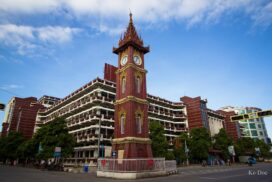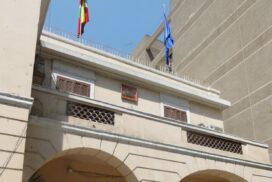Preserving natural cultural heritage is a collective responsibility shared by every individual in a nation. The heritage can include historical symbols, as well as tangible and intangible cultural elements. Myanmar, with its rich history, possesses a wealth of such tangible and intangible cultural elements.
All countries and their citizens endeavour to safeguard their cultural heritage, while also showcasing them to enhance their national image and identity. Tangible cultural elements encompass various materials, while intangible ones include languages, proverbs, sayings, stories, fine arts, entertainment, social and religious practices, customs, traditional festivals, traditional sports events, handicrafts, knowledge and traditions, and traditional medical treatments.
Myanmar boasts an impressive collection of 2,289 kinds of intangible cultural heritage. Efforts are currently underway to submit the Nomination Dossier for Myanmar’s Thanaka culture and traditional Maha Thingyan festival to the World Heritage Committee. Meeting the required norms is crucial for preserving national intangible cultural heritage.
Citizens must shoulder the responsibility of preserving the tangible cultural heritage, recording the intangible cultural heritage of the country, and safeguarding them from being replicated by other nations. It is essential to research the customs of ethnic groups in different areas.
Raising awareness among the population is vital to ensure a comprehensive understanding of the immense value of tangible and intangible cultural heritage. The people should take pride in possessing the heritage within their nation, rather than being emulated by those belonging to other countries. It is important not to diminish the cultural heritage of other nations or peoples, but rather to appreciate and emphasize their significance.
Every citizen has a duty to inform relevant departments and authorities about any discoveries related to cultural objects, as well as instances of abuse and smuggling of the nation’s cultural heritage. By doing so, timely action can be taken to prevent the loss of these invaluable treasures. Preserving cultural heritage should be guided by a collective consciousness of their value and the necessity of preservation efforts in respective areas.
The nature and character of a country are deeply rooted in its national integrity, historical evidence, and cultural heritage. As new cultures emerge in successive eras, it is crucial to analyze whether they align with national integrity and character. Acceptable cultures should be harmonized with existing cultural heritage. The preservation and appreciation of cultural heritage extend beyond national boundaries. Every individual is responsible for contributing to the preservation and safeguarding of these treasures, while also fostering an understanding and respect for the cultural heritage of other nations.
Stay up-to-date with the cultural heritage of other countries
- July 15, 2023
- 806













